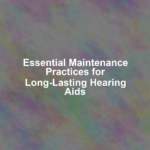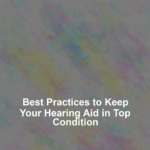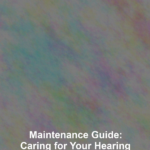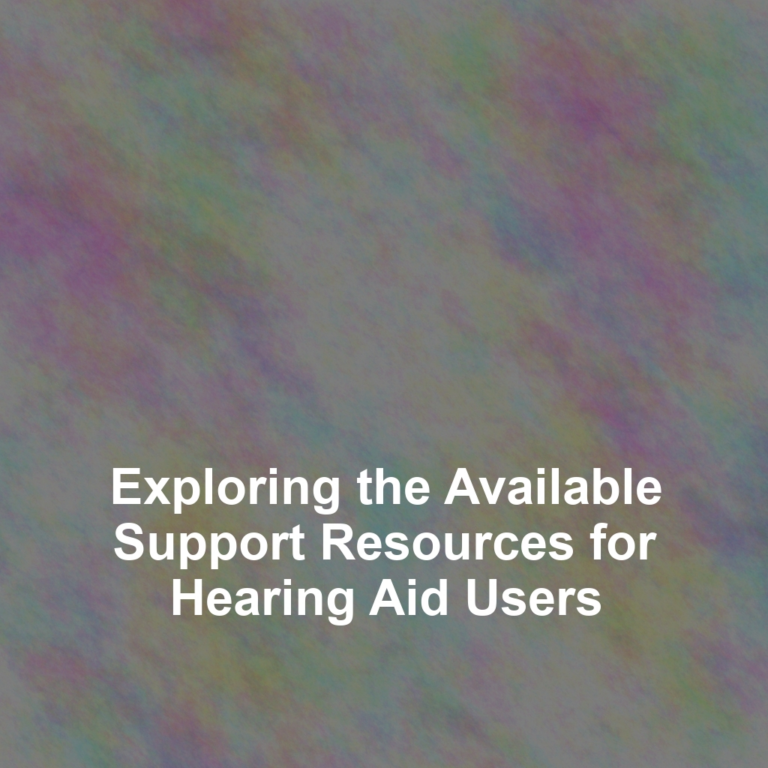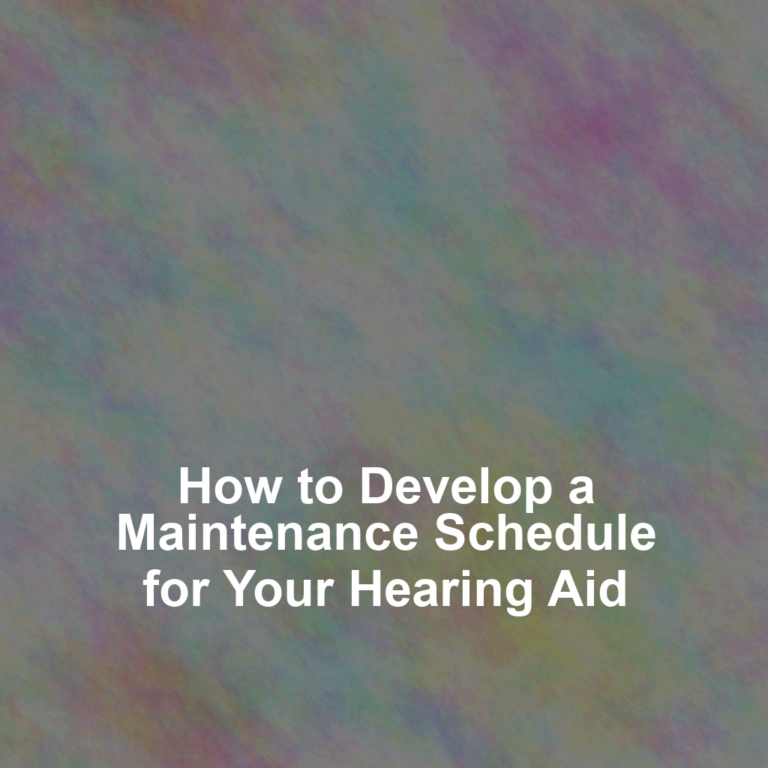Around 15% of American adults (37.5 million) aged 18 and over report some trouble hearing, and for many, hearing aids are a daily necessity. As you rely on this small yet sophisticated device to connect with the world, itG??s crucial to maintain its performance through proper care.
YouG??ve likely invested not just money, but also hope in this piece of technology, so itG??s in your best interest to ensure it functions optimally. From the simple daily cleaning routines that can prevent earwax buildup to the nuanced strategies for guarding against moisture, each step you take can prolong the life of your hearing aid.
But thereG??s more to it than just a quick wipe down or the occasional dryingG??understanding the subtleties of battery care or knowing when itG??s time for a professional check-up could make all the difference.
Stick around to uncover the lesser-known, yet vital, maintenance practices that can save you both time and frustration, ensuring your hearing aid remains a reliable companion.
Understanding Your Hearing Aid
Getting to know your hearing aid is the first step toward ensuring its longevity and optimal performance. YouG??ve got to dive into what makes it tickG??its parts, functions, and care requirements. Your device likely comes with a microphone, amplifier, speaker, and battery compartment. Familiarize yourself with these components because theyG??re your partners in maintaining your device.
YouG??ll need to regularly check your hearing aid for any wax buildup or debris. ItG??s not just about sound quality; itG??s about preventing damage. Remember, a little brush or a gentle wipe goes a long way in keeping those tiny parts working as they should.
Also, youG??ve got to be mindful of your batteries. TheyG??re the heart of your hearing aid, and without them, youG??re missing out on the world around you. Learn when they need changing and what type to buy; itG??ll save you from unexpected silence at inconvenient times.
Lastly, donG??t shy away from your audiologistG??s advice. TheyG??re the experts and can give you tailored tips to keep your hearing aid in tip-top shape. So, take this knowledge, use it well, and youG??ll ensure your hearing aid remains your reliable companion for a good, long while.
Daily Cleaning Routines
To maintain your hearing aidG??s performance, incorporate a simple daily cleaning routine using a soft, dry cloth to wipe away any accumulated debris. Begin by gently brushing the microphone and speaker areas to ensure theyG??re free from dust or earwax that could muffle the sound. ItG??s crucial to avoid using water or chemical cleaners, as they can damage your device.
Next, inspect the earpiece for earwax buildup. Earwax is natural, but it can clog the sound outlet and reduce your hearing aidG??s effectiveness. Use the brush provided by the manufacturer or a wax pick to carefully remove any visible wax. Remember, be gentle to avoid damaging any delicate components.
Lastly, open the battery compartment. Remove the batteries and clean the contacts with your dry cloth. This prevents corrosion and power issues, ensuring your hearing aid functions optimally.
Adhering to this routine every night before bed wonG??t only extend the life of your hearing aid but also guarantee consistent sound quality. ItG??s a small investment of time that pays off in maintaining your deviceG??s performance and your quality of hearing.
Moisture Protection Strategies
While daily cleaning is critical for your hearing aidG??s upkeep, safeguarding it against moisture is equally important to prevent damage and ensure its longevity. Moisture can wreak havoc on the delicate electronic components inside your device.
HereG??s what you can do to protect your hearing aid from moisture:
-
Use a dehumidifier: At night, place your hearing aid in a dehumidifier designed for these devices. ItG??ll help dry out any moisture thatG??s accumulated throughout the day.
-
Avoid water activities: DonG??t wear your hearing aid while swimming, showering, or during heavy rain. If you canG??t avoid exposure, consider a waterproof cover or case.
-
Be mindful of sweat: If youG??re physically active or live in a humid climate, use a sweat-resistant cover or a headband to protect your hearing aid from excessive sweat.
-
Handle with dry hands: Always make sure your hands are dry before you touch your hearing aid to prevent accidental moisture transfer.
Regular Professional Check-Ups
Just as youG??d schedule routine check-ups for your own health, itG??s essential to have your hearing aid professionally examined regularly to ensure it functions optimally. Think of these check-ups as tune-ups that keep your device in top shape. You wouldnG??t ignore your carG??s regular service; donG??t neglect your hearing aid either.
During these visits, a specialist will check for any wear and tear that might affect performance. TheyG??ll also make sure the fit is still right. Your ears can change over time, and an ill-fitting hearing aid wonG??t do you any good. They might even catch issues you havenG??t noticed, like a drop in sound quality or a loose wire.
You should aim to have these check-ups at least once a year, but if youG??re noticing any issues or your hearing aid seems less effective, donG??t wait. Book an appointment right away. ItG??s better to address problems early on than to let them worsen.
Battery Care and Replacement
Proper battery maintenance is crucial for ensuring your hearing aid performs reliably and lasts as long as possible. Your hearing aid is a lifeline to clearer communication, and its battery is the heartbeat that powers it. To keep it functioning at its best, you need to take care of the batteries meticulously.
HereG??s how you can ensure they last longer and work efficiently:
-
Turn off your hearing aid when youG??re not using it. Just like with any electronic device, conserving power when itG??s not in use will extend the life of the batteries.
-
Store batteries at room temperature. Extreme temperatures can affect battery performance, so donG??t keep them in very hot or cold places.
-
Check the expiration date. Batteries can lose power over time, even if they arenG??t used. Always use the freshest batteries available.
-
Be gentle when replacing batteries. DonG??t force them into the battery compartment, as this can damage both the batteries and your hearing aid.
Remember to wash your hands before handling your hearing aid batteries to avoid transferring dirt and oils. And donG??t forget, if youG??re unsure about how to replace the batteries properly, consult the user manual or reach out to a professional for assistance.
Conclusion
Keep your hearing aid in top shape by understanding its parts and how they work.
Clean it daily to prevent wax buildup.
Protect it from moisture with a dehumidifier or drying kit.
DonG??t miss your regular check-ups for professional cleaning and fine-tuning.
Stay vigilant about battery life; replace them before they die completely.
By following these simple steps, youG??ll ensure your device performs at its best, keeping you connected to the sounds of your world.

